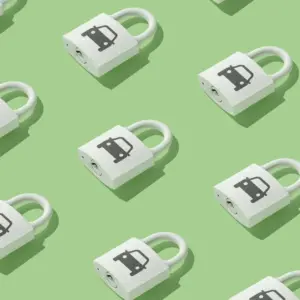Insurance is a complex product and understanding its terminology can be confusing and frustrating. For example, what exactly is an insurance endorsement, rider, and floater?
They are the three main ways an insurance policy may be modified. Here are the differences between them and what they may mean when included in your policy.
Insurance policies can be customized
Endorsements, riders, and floaters enable you to customize your policy and modify your coverage. While insurance companies usually have fixed policy terms, these options allow you to tailor your policy to your specific needs.
Here is the definition of each:
Endorsements
An insurance endorsement will override the existing policy wordings and is used to add, exclude, or alter a policy’s terms. If a policyholder had an endorsement for sewer-backup, a policy that would ordinarily exclude such coverage would be “rewritten” to include coverage for damages due to sewer-backup.
An endorsement is issued by an insurance company to show that a change has been made.
Riders
A rider, similar to an endorsement, adds additional coverage to an existing insurance policy. An example of this might be accident forgiveness. Accident forgiveness prevents your insurance rates from increasing after a first at-fault accident. Without the rider, this coverage would not exist. Riders generally come at an extra cost.
Floaters
A floater isn’t so much an “amendment” to an existing standard policy as it is additional coverage for property that is movable. A common name for an insurance floater is “personal property floater.” It can be used to cover anything from electronics and musical instruments to sporting goods and firearms. A floater ensures that your home insurance protects your property for its full value. If you have several items requiring this type of coverage, you may need to get floaters for each.
What are some common types of insurance riders and endorsements?
Insurance endorsements riders are some of the more popular modifications you’ll see made to standard insurance policies, and there are a lot of them!
Scheduled personal property riders

You can purchase riders that are designed to cover special types of items to account for their higher value or risk. This is also called scheduling. You can schedule to increase the sub-limit of a certain piece of property or to add a new type of coverage (such as covering chinaware for accidental breakage, which wouldn’t ordinarily be covered by your standard home or renters insurance).
Here are some examples of commonly scheduled items:
- Furs and antiques
- Jewelry
- Comic books
- Sports equipment
- Musical instruments
- Firearms
- Collections (stamps, wine, etc.)
- Electronics
- Bikes and boats
Identity theft insurance
Identity theft insurance can be added to a home, renters, or condo policy to protect you against attempts or actual thefts of your personal or financial information. It can help cover the costs associated with the recovery process along with any legal expenses and more.
Non-owned auto insurance
Non-owned auto liability insurance may be added to standard auto policies to cover your liability when borrowing or using someone else’s vehicle. This ensures that any liability claims that might arise out of the usage of another person’s vehicle would be covered under your policy and not affect theirs.
Rental car insurance
Frequently rent vehicles while travelling? Rental car agencies typically sell their own insurance, but that’s charged by the day and can be expensive. You can get around this by purchasing an endorsement which provides OPCF 27. OPCF 27 allows your personal policy to extend to any other vehicles you’re driving, including rental cars.
Sewer backup insurance
Raw sewage can be extremely damaging to your home, not to mention a (costly) hassle to clean up. A sewer backup endorsement, when added to your home policy, includes coverage for damages due to septic system or sewer backup. Standard home policies do include some water damage coverage, but that doesn’t extend to sewer backup.
Earthquake insurance
Earthquakes aren’t terribly common in Ontario, but they do happen. Your standard home insurance won’t cover damages resulting from an earthquake. Adding earthquake insurance can modify your policy to include coverage from earth movements, land sliding, and more.
Home-based business insurance
Run a business out of your home? Your home insurance may be limited in covering your activities. You may need to purchase a home-based business endorsement or, in special cases, a separate commercial policy altogether.
Know what you’re covered for
While it’s not necessary to know your insurance policy word-for-word, having a basic understanding of what is and isn’t covered is recommended.
Easily the greatest advantage of working with a broker is having an expert who can review your insurance needs and determine what riders, endorsements, or floaters might be worth your while. Without their expertise, you could be left with coverage gaps, leaving you exposed. Give Mitch a call today and connect with one of our brokers.








